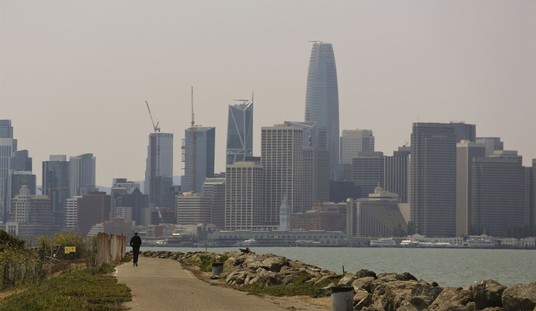How did Wisconsin and so many other states get to the point of being held hostage to public-sector unions? Jonah Goldberg gives an instructional tour of the history of the labor-government relationship, which only goes back for most of the country to 1962. President John Kennedy lifted the ban on public-sector unions at the federal level in that year, but not because civil-service employees faced poor working conditions or uncertain status. Kennedy liked how the labor movement could feed his party’s needs for support and funding through unionization, Goldberg argues, which put us on an inexorable path to bankruptcy:
Government workers were making good salaries in 1962 when President Kennedy lifted, by executive order (so much for democracy), the federal ban on government unions. Civil-service regulations and similar laws had guaranteed good working conditions for generations.
The argument for public unionization wasn’t moral, economic, or intellectual. It was rankly political.
Traditional organized labor, the backbone of the Democratic party, was beginning to lose ground. As Daniel DiSalvo wrote in “The Trouble with Public Sector Unions,” in the fall issue of National Affairs, JFK saw how in states such as New York and Wisconsin, where public unions were already in place, local liberal pols benefited politically and financially. He took the idea national.
The plan worked perfectly — too perfectly. Public-union membership skyrocketed, and government-union support for the party of government skyrocketed with it. From 1989 to 2004, AFSCME — the American Federation of State, County, and Municipal Employees — gave nearly $40 million to candidates in federal elections, with 98.5 percent going to Democrats, according to the Center for Responsive Politics.
Why would local government unions give so much in federal elections? Because government workers have an inherent interest in boosting the amount of federal tax dollars their local governments get. Put simply, people in the government business support the party of government. Which is why, as the Manhattan Institute’s Steven Malanga has been chronicling for years, public unions are the country’s foremost advocates for increased taxes at all levels of government.
The problem goes beyond the financial footing of governments, although we have begun to finally appreciate just how damaging that has been. Thanks to the political clout of public-employee unions (PEUs), the states and the federal government have acted as bill collectors from their own employees to feed union coffers through closed-shop rules. That power has allowed unions to get outrageous pension benefits with little or no contribution from their members, as we have seen in Wisconsin, California, and many of the rest of the states burdened with defined-benefit pension plans.
The unions act, in effect, as a workaround to state legislatures on budgeting and bureaucratic management. This process has become entirely transparent in Wisconsin, where Senate Democrats insist that Governor Scott Walker has to negotiate budget proposals not with them but with union leaders — effectively giving the unions a veto power on the business of the legislature. Small wonder President Franklin Delano Roosevelt warned about allowing government workers to unionize, saying “the process of collective bargaining, as usually understood, cannot be transplanted into the public service.”
Walker’s proposal in Wisconsin approaches this key problem in a moderate manner. It does not ban PEUs, as the unions claim, or even collective bargaining. It does, however, limit the collective bargaining to wages only, and it also takes the state out of the business of collecting union dues. Walker’s bill would end the requirement of state workers to join the unions at all, making the public sector in Wisconsin (but not the private sector) a “right to work arena,” which it should have been all along. That’s a reasonable intermediate step to abolishing PEUs, and should address the imbalance in control of public policy.
What do you think? Take the poll:








Join the conversation as a VIP Member